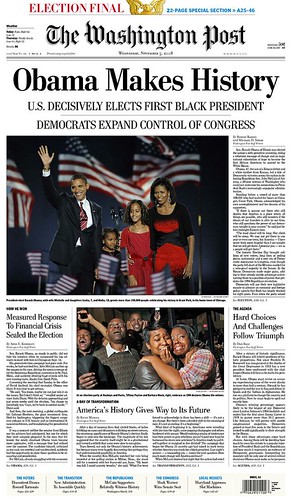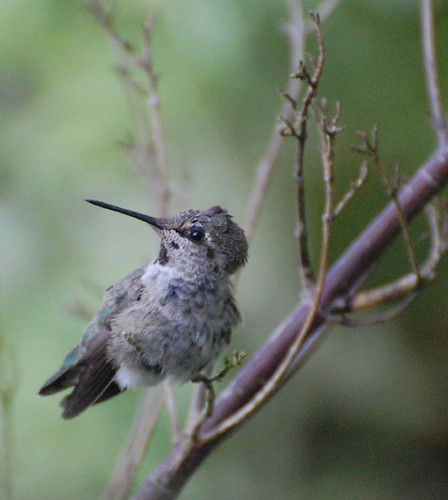I hate our national anthem. Actually, I hate the concept of national anthems in general. Nationalism is just one more social disease that the human race has chosen to inflict upon the world (actually, I’m not entirely sure the human race isn’t itself a social disease…). In the early days of the human race, I’m certain our social tendencies—the herding instinct by which we understood that there was safety in numbers—not only kept the species alive but allowed it to thrive. It didn’t take long for us to take that instinct and kick it up a notch. We were surviving on an acceptable level, so the focus turned toward domination.
Well, we have thrived plenty,
thank you very much. And I think it’s
safe to say we dominate the globe, and the instincts that led us to collect and
defend ourselves in groups have, unfortunately, thrived apace. But human beings, in our “our brains are too
big for our thoughts” way, have taken those instincts to a very dark
place. We murder each other for
pleasure. We torture and kill others of
our own species because we can. Those who embrace such blood-thirst use it as
a control mechanism over the rest of us.
In the 21st
century, we have nations—political divisions of every scrap of land on the
planet. Theoretically, the governing
bodies of those countries craft means to improve the living conditions of all
the peoples living therein. But,
primarily, the nations are merely overgrown tribes. Warring tribes that can’t seem to ever trust
other tribes, and always seem to think they don’t have enough of something, so they go out and raid
another tribe’s territory to get it. And
the cycle of grouping, domination and killing never stops. No matter what “modern” name you choose to
give it.
It’s a modern tradition that
every nation have an anthem: A song that
declares allegiance to a particular tribe, incites tribe members to loyalty and
demonstrates to all who hear that members of this tribe will “defend” it
against all comers. Quite primitive, really…like
the territorial vocalizations of any animal on the planet, from laughing hyenas
to screaming eagles to chest-beating gorillas.
I don’t know…shouldn’t we have outgrown that at some point?
Let’s for a moment concede
that we have to have countries, and that the countries have to have national
anthems. Then can’t they be about peace
and plenty? About beauty and
largesse? Wouldn’t those be greater concepts to embrace
and sing about? Wouldn’t they be safer,
given the human race’s present capacity to make itself extinct?
I’ve never been able to
understand why we’ve chosen to elevate Francis Scott Keyes’ poem, crafted
during a minor battle in a redundant war and set to the tune of an 18th-century
British glee-club song, over the
lovely and lofty America the Beautiful. Though the two songs were written almost 100
years apart, the US didn’t adopt a national anthem until 1931—so both songs
were out there for consideration. But
Congress and the President chose this sentiment:
“…And the rockets’
red glare, the bombs bursting in air
gave
proof through the night that our flag was still there…
over this one:
“America, America,
God shed his grace on thee
and
crown thy good with brotherhood from sea to shining sea.”
Saying nothing about the pure
war-hawkishness of the first, it seems
more invested in elevating a scrap of fabric to the level of an object of
worship than in waxing emotional about the country over which it flies. Where the second at least manages to put forth
a mention of the nation itself.
So with this backstory on my
feelings about the national anthem, perhaps you can understand my reaction when
I came across this Facebook post yesterday:
And my subsequent exchange of
words with another commenter who did not, to put it mildly, share my
feelings.
What is it about some people
that they cannot deal with opinions opposite of their own? For that matter, what is it about some people
that they can’t abide a negative word about anything they believe to be
sacred? Or, that if you speak negatively
about one aspect of a complicated conglomeration of concepts—such as our
nation, its government, its wars and its “beliefs”—you have thrown the whole conglomeration under the
bus and need to be horse-whipped (verbally, at least.)
Why is hating one crappy song
turned into a transgression on the order of treason?
I am grateful for this
exchange, though. If for no other reason
than that it clarified some things in my own mind.
Like the true “patriotism” of the concept of an “Independent Voter.”
You’d think if someone was so
attached to the concept of war, he would get the connection between those wars
and one positive thing we might have won through at least one of them.
Independence, my friend.
Get some.





















The song itself is about the thrill Key felt to still see our flag standing after a horrendous firefight. Albeit, the tune is a crappy old English drinking song done over.
ReplyDeleteI'm all for keeping it just because of the history. It tells an important piece of how we became a nation.
For a cozy, happy song, there is America the Beautiful.
The gravitation toward a one world attitude will one day lead to a one world government. As a Christian, I know that is coming. And that one world government will strip the freedoms we have enjoyed away. But praise God, I won't be around for much of it! That is assuming it happens in my lifetime.
Life & Faith in Caneyhead
Barb, here are a couple of things:
ReplyDelete1.) What would be wrong with the national anthem being a "cozy, happy song?" Why does it have to be about war? Is that who we are, as a nation? Probably the answer to that is "yes," but I wish it weren't so.
2.) As far as proselytizing your beliefs, you're welcome to do that here, because I like to encourage people of many faiths and belief systems to read the blog. But I think it would be wise for you to frame your comments with "I believe" or "my spiritual tradition teaches," rather than stating them as if they are facts, e.g.--"As a Christian, I believe that is coming," rather than "I know it is coming."
I am not one to criticize anyone's spiritual path, but I don't believe it is healthy or correct for anyone to assume that what their religion teaches is the only truth, and people who don't adhere to those beliefs are wrong, or something bad is going to happen to them (like that they will go to "hell"...)
I like to leave room to allow that the Creator is as diverse as Its creation...